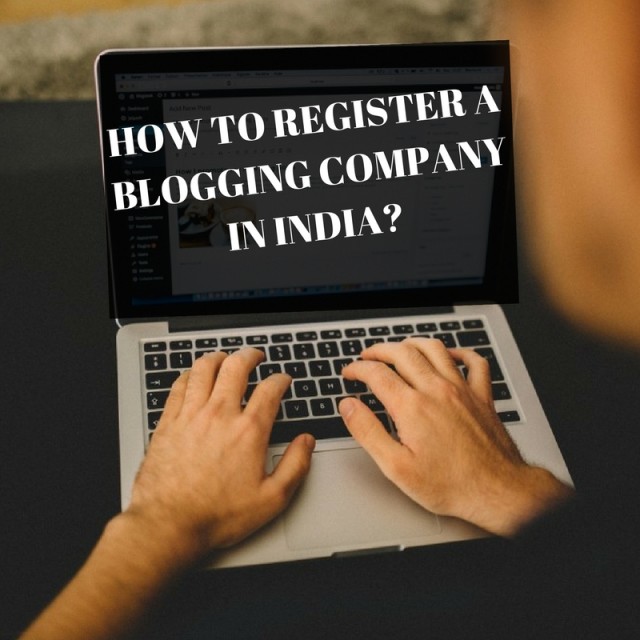REGISTERING A BLOGGING COMPANY IN INDIA
If you have a blog for making money, you would register a company that runs a blog. A blogging company need to be registered first like pvt ltd company or LLP or Solo firm etc. It’s not mandatory that you have to go with the Pvt ltd Company or LLP even you can run a simple solo firm which is best legal entity for testing your ideas.You need to register your trademark for your blog, though it’s not mandatory in India but it has certain benefits.
There are 5 types of business registration available –
- Sole Proprietorship Firm: –If you are a single blogger it’s the best way to register your blogging company. A current account can be opened after service tax registration.Service tax Registration need to be done, for doing so you will be required pan card, voter id or adhar card and one business place proof like rent agreement copy or NOC from landlord.
- Partnership Firm: –If you have 2 or more than 2 founder this can be opted as a way to register the blogging company in the form of partnership firm. In this a partnership deed need to be formulated and PAN card is required as an ID proof. With the help of this a current account can be opened in banks registered under the name of the blogging company.
- Private Limited Company: –If you have 2 or more than 2 founder than along with partnership firm, this can also be opted as a way to register as a private limited company. If the aim of the company is to make a big company and its set up cost is high it’s the best way to opt.
- LLP: –It is similar to that of private limited company with less liability less set up cost. If the budget is less then this can be an appealing way to register the blogging company. For its registration a Designated Identification Number (DIN) need to be obtained along with digital signature of registered partners. Check for the availability of the name and the filing of Incorporation and Subscription document. Lastly an LLP agreement need to be formulated.
- One Person Company: –Though a One Person Entity allows a lone Entrepreneur to run a business with Limited Liability protection, an OPC (One Person Company) does have a few limitations. For instance, every OPC must nominate a nominee Director in the MOA or AOA who will become the owner of the OPC in case the promoter Director is disabled. Also, an OPC must be converted into a Private Limited Company if it crosses an annual turnover of Rs.2 crores and must file audited financial statements with the Ministry of Corporate Affairs at the end of each Financial Year. Therefore, it is important for the Entrepreneur to carefully consider the features of an OPC prior to incorporation.
Author: This blog is written by Ms. Ankana Mukherjee, a passionate blogger & intern at Aapka Consultant.
Some of the related articles:
- HOW TO REGISTER PRIVATE LIMITED COMPANY IN INDIA
- WHY PRIVATE LIMITED COMPANY OR LLP IS PREFERRED?
- Registration Process of Private Limited Company
- ANNUAL COMPLIANCE FOR PRIVATE LIMITED COMPANY
- Registration process of LLP
- LLP REGISTRATION
- LLP : Types & Agreement
- ONE PERSON COMPANY (OPC)
- INC-29 One Person Company Registration Process
- One Person Company (OPC)
- ADVANTAGES OF ONE PERSON COMPANY (OPC)
- Registration of Sole proprietorship
- SOLE PROPRIETORSHIP
- Registration of Partnership firm
- PARTNERSHIP FIRM
OUR SERVICES
Company Registration I Trademark I Copyright I Patent I GST I MSME
ISO Certification I Website/App Policy I Legal Documentation
Annual Compliance I Connect Consultant
Visit: Aapka Consultant to get Online Services of CA CS & Lawyers.










